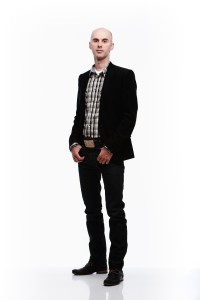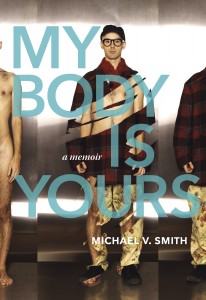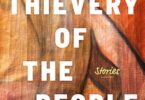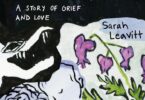by Trevor Corkum
There are books that come along once in a blue moon that split you open. Not simply because of the subject matter, although Michael V. Smith’s My Body Is Yours covers ground I am familiar with—struggles with masculinity; growing up queer in a small, secretive town; feeling sometimes like a stranger in your body. What tore me gloriously apart reading Smith’s fabulous memoir is his unfailing generosity: a willingness to wrestle honestly, like all true artists, with the hardest, darkest parts of his own psyche. By casting a bright light on the shame, exhilaration, and patterns of aversion and desire that have shaped his own life—employing a healthy dash of sass in the process—he celebrates the imperfections that unite us as human beings in a manner that is humbling and deeply profound.
The memoir in part is a meditation on what it meant to come of age as a white, queer, working-class young man in Canada in the 1970s and 1980s, a peculiar juncture in time that (for you younger readers) predates the advent of the Internet and much of the slow march toward equality for LGBT folks in this country. Smith grew up in a time and place where to be queer was to be perpetually isolated, without even a virtual window onto positive representations of gay life. In the absence of cultural signposts, queer identity was forged in underground, day-to-day, real-life survival contexts, at home and in the schoolyard. “I lived a great deal of my early childhood feeling like I was alone at the bottom of a deep well,” he writes, “Shouting upwards, with nobody bothering to peer over the lip and help.”
Smith’s early years were marked by an unstable, chaotic home life, which found him pining for a way out:
In the quiet aftermath at the end of a day, I’d lie in bed imagining ways to escape, sometimes jumping out the second-storey window or using my Star Wars sheets to lower myself down. Sometimes I’d slip to my death; sometimes I’d jump head first on purpose. Or I’d run down the steps and out the front door into traffic. I’d time it for when a transport truck was passing, to be thorough.
A tender, loving, late-teenage relationship with Dana, another boy in his town, offers a safe haven and introduces us to the book’s key themes—Smith’s early loathing of his physical body (wearing a T-shirt for sex with Dana, to hide a bad case of acne), the healing power of sexual intimacy, and the political and creative awakening that allow Smith to confront and begin to break down the rigidity of fixed gender roles. It’s also a mark of Smith’s ability to marry raw sexual honesty with heartbreaking tenderness that he describes his final evening with Dana. During this culmination of an amicable, loving breakup, they fist for the first time:
Fisting altered my sense of the inside and the outside, of the body’s border, or the borders of the selves. To date, fisting is my best experience of the embodiment of the profane and the sacred. Our vulnerability in that moment was complete, encompassing, thorough. Love is never more acute than when your interior is in the hands of another.
After Dana, we follow Smith from Toronto to Vancouver and are privy to a spiral of anxiety and despair that finds outlet in binge drinking and periods of compulsive, anonymous sex. Smith describes both in vivid, clear-eyed detail. Heading home from the park with a guy named Nick, Smith engages in raw, rough, almost transcendent sex. It’s characteristic of the book that within these supposedly anonymous, no-strings attached types of encounters, Smith finds moments of beautifully intimate, fleeting connection, which he evokes here gorgeously:
At one point, I had such a pool of sensation welling up, I thought I might explode into tears. I had to get the feeling out of me. It was like an orgasm of the senses, but it wasn’t cum flying out of me but feelings—living, pure living about to burst out of my skin.
Not all of Smith’s sexual escapades are so uplifting. Later, he describes the monotonous and endlessly numbing loop of cruising for online sex. Connected to several cruising websites and several apps simultaneously, he “could have eight or more options running at once. Vibrant, interactive, channel surfing. A mediated frenzy.” Hours and days and weeks and months seem to vanish in a haze. Smith himself disappears emotionally for extended periods of time. Exploring the mind of the sexual compulsive, he says, “Compulsion is not sustained by novelty but by its ability to turn off our conscious mind, to distract us. The less we have to think about, the more automatic and easy it is to disengage from the present.” Eventually, Smith enters therapy, facing the realization that his sexual habits are another form of avoiding—as alcohol, drugs, food, and shopping are for many—that make him feel alive for a time, but ultimately shield him from experiencing deeper vulnerability and the long-lasting intimacy he craves. In a moving, heart-wrenching scene in his therapist’s office, Smith breaks down, recognizing that “I’d been terrified of the world from the inside out. I was terrified of my black cloud. My psyche was a hummingbird, too speedy for predators, trying to outrace panic.” Embodiment, and mindfulness techniques taught by his therapist, help him slow down and find healthier ways to redirect his compulsive energy.
Throughout the book, Smith weaves together memories of his father, a distant and emotionally absent man who lingers in the shadows of every story and seems to stare up from under the surface of every page. Smith’s complex relationship with his dad, a man he was determined to avoid becoming, serves as a springboard into larger, thoughtfully nuanced discussions of gender and masculinity, allowing Smith to explore and articulate his own fluid version of what it means “to be a man.” Toward the end of the memoir, as his father lies sick in Ontario, Smith and his dad have an opportunity for an awkward and loving reconciliation, a chance to see each other exposed, armour laid down at last.
In the memoir’s final section, “A Failed Man,” Smith writes:
I know my father didn’t let love in, didn’t trust himself, or others, didn’t feel safe enough to put down his armour very often … I know his heart was fierce and unwieldy. He had a rich interior life, so much so that he didn’t know how to handle it, what to do with it, where to put that fear and love he felt for the world. So he poured it into a cold glass and drank it down, day by day. Love is a sickness if you don’t share it.
What Smith does best in My Body Is Yours is set up a series of false dichotomies—the sacred and the profane, monogamy and promiscuity, pain and pleasure, male and female—and rather than simply collapse these binaries, or exist within the complex space between, he pushes past the borders of these ideas themselves, an explorer of the heart unafraid to tread new ground. In doing so, he recreates, on his own splendid terms, what it means to be human.
Lucky for us, he invites us along for the ride.
Is this is a book about resilience? Hell, yes. But it is also a book about stripping down, letting go, owning and embracing what may feel at first ugly and unlovable in ourselves—the terrifying vulnerability, that carpetbag of shame, the musty cobwebs of guilt. The sense that we are not good enough, that at our core we are unlovable. To paraphrase the brilliant John Berger (one of Smith’s own idols), this book offers us a new lens, another way of seeing our lives. It is nothing short of a celebration of being hopelessly here and alive. If you let it, it’s a book that might make you bawl, or embark on a dark, quiet journey somewhere deep inside yourself. It will certainly offer you a gentle hand, a warm shoulder, and full permission to howl out the cacophonous chorus of your own soft animal pain.
And that, dear readers, is a gift.
Michael V. Smith, My Body is Yours (Arsenal Pulp Press, 2015). Paperback, pp., $17.95.
Trevor Corkum’s fiction and non-fiction have been nominated for the Journey Prize, Pushcart Prize, and a Western Magazine Award. He’s just completed a collection of short fiction and is diligently at work on a novel set in North End Halifax. Find him online at trevorcorkum.com or follow him on Twitter — @trevcorkum.







